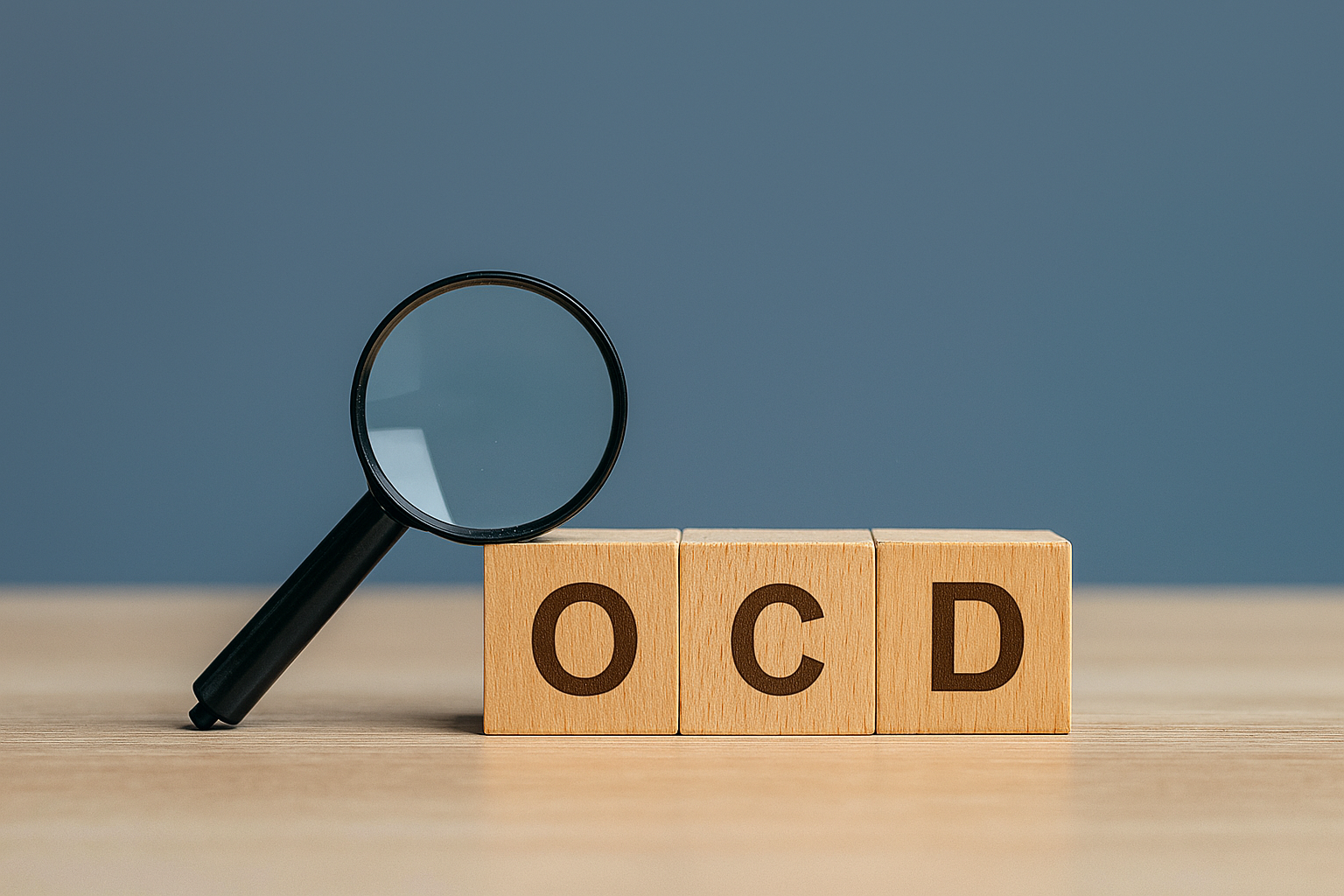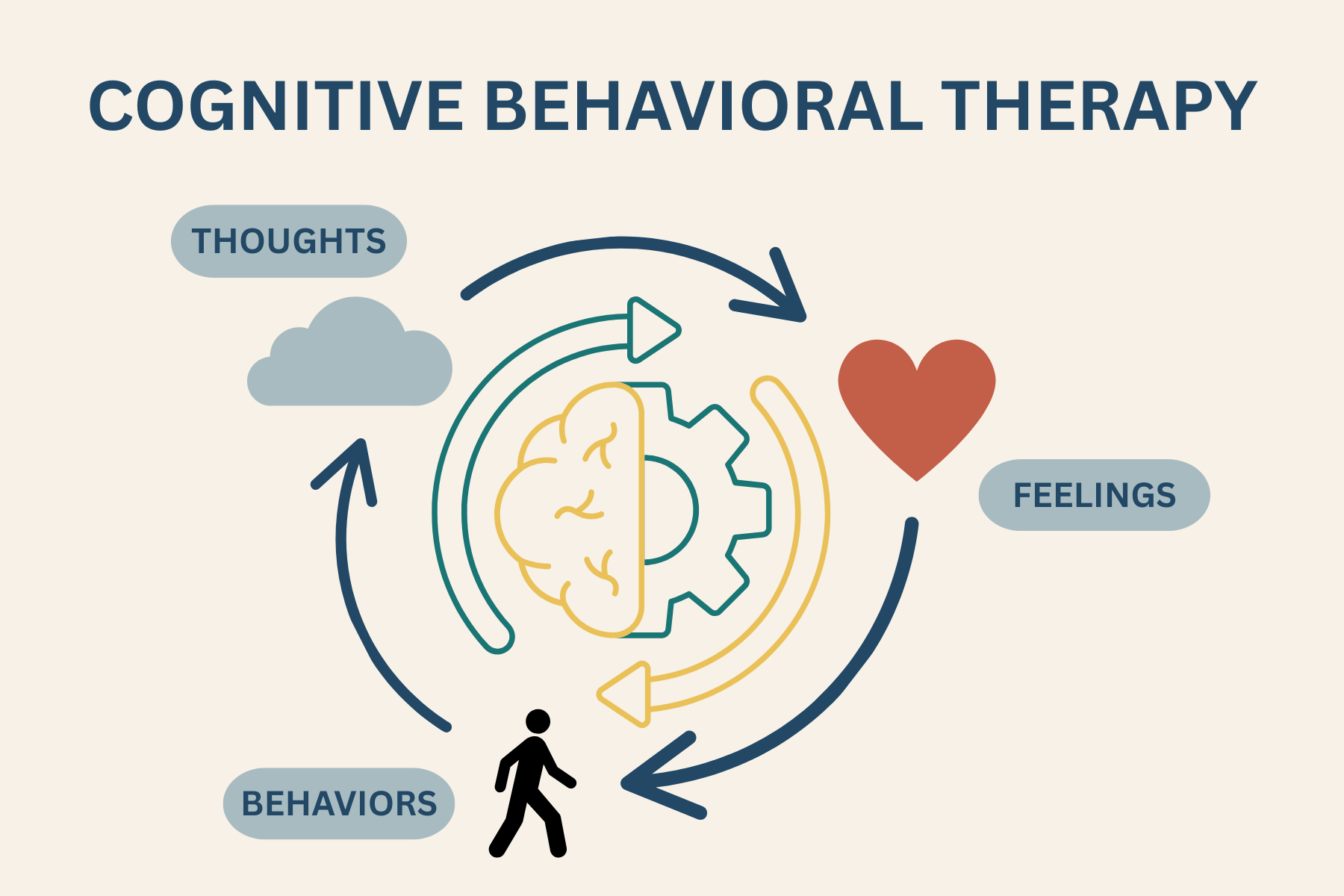How Can an Emotional Eating Therapist Help Me? 8 Tips to Control Emotional Eating
Most people can relate to turning to a comfort meal or sweet treat after a hard day. But when does this practice go from an occasional occurance to a consistent coping mechanism and become emotional eating? And can an emotional eating therapist help?
Psychologist Jane Hobart, PsyD at Aspire Psychology shares about the differences between emotional eating and eating disorders, how to recognize when emotional eating has become a problem, and how an emotional eating therapist can help.
Will Taking a GLP-1 Impact My Mental Health? Emotional and Behavioral Changes to Watch For
In recent years, GLP-1s have become some of the most talked about medications in the medical community. However, despite the extensive attention they’ve received, there is still a lot to learn about GLP-1s, and researchers continue to study and discover more about this recent addition to the world of healthcare. Wondering if taking a GLP-1 will impact your mental health? Psychologist Jane Hobart, PsyD at Aspire Psychology shares more about what to expect, as well as what to look out for while on a GLP-1.
Seasonal Affective Disorder Test: Do I Have Seasonal Affective Disorder?
The darker months can dampen anyone’s spirits—but how do you know if something more serious is going on? If you’re wondering if your lethargy, mood changes, and persistent feelings of hopelessness are more than the winter blues, keep reading to learn more and take a seasonal affective disorder test.
Caring for Your Mental Health in the New Year: Why You Shouldn’t Quit Therapy When Your Deductible Restarts
The new year is just around the corner, and there’s no better time to prioritize your mental health. If you’ve already begun your therapy or medication journey, the new year is a great chance to resolve to continue working toward healing. Keep reading to learn more about how you can best care for your mental health in the new year—and why a big part of that is being consistent with therapy.
Signs of Codependency: Am I In a Codependent Relationship?
In recent years, the term codependent has become a buzzword, often used loosely in everyday conversation and across the internet. The term, which was initially used in addiction recovery, has quickly become the pop psychology synonym for someone who might be clingy or needy, and has led to a great deal of confusion about what codependency actually is.
Caring for Your Mental Health During the Holidays: Navigating Holiday Stress, Grief, and Interpersonal Challenges
The end-of-year holiday season is often portrayed as a time of joy, connection, and celebration. Yet, for many, it can be a period filled with increased stress, conflict, or a sense of loneliness and disconnection. When the people and culture around you emphasize festivity and cheer, it can be isolating when your internal experience doesn’t match the surrounding environment.
Psychiatrist vs. Psychiatric Nurse Practitioner: What’s the Difference?
Making the decision to prioritize your mental health is a huge step toward building a healthy, joyful life — and for many people, this means finding the right provider to prescribe or manage medication for a mental illness. But knowing where to begin can feel overwhelming, especially as you navigate a sea of unfamiliar terminology.
Adjusting to College: A Guide to Finding your balance
College life feeling overwhelming? Explore mental health tips, Starting college is exciting but stressful. Aspire Psychology in Portland provides therapy & psychiatric support for students navigating anxiety, depression, & adjustment challenges.
What is codependency? Signs, causes, and how therapy can help
Have you ever wondered why some relationships feel one-sided or draining? What’s often described as codependency isn’t a diagnosis—it’s a set of learned behaviors that can shape how you relate to yourself and others. Learn the signs, explore the cultural context, and see how therapy can help you find balance.
Codependency can feel overwhelming, but it can be unlearned. Aspire Psychology in Portland offers therapy to help you build boundaries, self-esteem, & healthier relationships.
Superbill 101: A Guide to Out-of-network mental health reimbursement
Curious about how to use your insurance benefits if your mental health provider isn’t in-network? This blog explains what a superbill is, how to submit one, and what to expect so you can make the most of your benefits while getting the care you need without being limited to clinicians who have contracted with your insurance company.
Find Relief from Anxiety in Portland: Evidence-Based Therapy: CBT, ACT, & Medication Options that Work
Looking for anxiety therapy in Portland? Aspire Psychology offers CBT, ACT, trauma therapy & medication management. In-person & telehealth available.
When Therapy Isn’t Enough: Should you add medication for depression or anxiety?
If therapy alone isn’t easing the weight of depression or anxiety, you’re not out of options. Learn how expert psychiatric care with therapy or on it’s own can open the door to real relief, stability, and renewed progress.
Do I Have OCD? Take the Quiz & Explore Proven Treatment Options
Wondering if your thoughts or behaviors might be signs of OCD? This blog breaks down what OCD really is (and isn’t), offers a free assessment online, and explores proven treatment options—from therapy to medication—available right here at Aspire Psychology.
What to Expect in your first therapy session
Starting therapy can feel overwhelming, especially when you're unsure what to expect. In this post, learn how Aspire Psychology therapists create a safe, affirming space where you set the pace, and discover what a good therapist-client fit really feels like. Whether you're brand new to therapy or returning after time away, this guide offers clarity, reassurance, and encouragement for your first steps.
Health Insurance 101
Confused by mental health insurance? Learn how Aspire Psychology takes the guesswork out of coverage, verifies your benefits for you, and supports you through every step of the billing process—including coordination of benefits if you have more than one plan.
Healing Trauma & Anxiety with Mind-Body Therapy: A Holistic Approach
Living with trauma, anxiety, or chronic stress can feel overwhelming—emotionally and physically. You might notice tension in your body, a racing heart, or a sense of being “stuck,” even after talk therapy. That’s because unresolved stress often lives in the body as well as the mind. A mind-body approach to healing, such as somatic therapy, addresses both to help you release stored tension, restore balance, and feel safe again. At Aspire Psychology, we use evidence-based techniques to support lasting healing and resilience.
What is Cognitive Behavioral Therapy
Looking for an effective, evidence-based approach to managing anxiety, depression, or panic attacks? Learn from Aspire Psychology therapist, Dana McPherson, LCSW, about the basics of Cognitive Behavioral Therapy (CBT) —one of the most widely used and research-supported therapies for improving mental health.
Finding the Right psychiatric provider: a guide to choosing a psychiatric mental Health Nurse Practitioner (PMHNP)
Navigating mental health care can feel daunting—this guide breaks down how to find the right Psychiatric Mental Health Nurse Practitioner (PMHNP) in Portland with clarity and confidence. Learn what sets PMHNPs apart, what to expect from your first visit, and how Aspire Psychology makes compassionate, personalized care accessible.
Queering Therapy: Reimagining Healing Beyond Norms
What if therapy didn’t ask you to conform to what others think is normal or to simplify who you are to fit in—but instead made space for all of who you are? This article explores how queering therapy reimagines healing in ways that affirm LGBTQIA+ identities and people of all identities seeking more inclusive, authentic support.
Eye Movement Desensitization and Reprocessing
Eye Movement Desensitization and Reprocessing (EMDR) is practiced by more than 100,000 clinicians across the world and millions of people have been treated successfully. Dr. Francine Shapiro began to EMDR in 1987 after she noticed that certain eye movements seemed to alleviate negative thoughts about previous traumatic events.



















